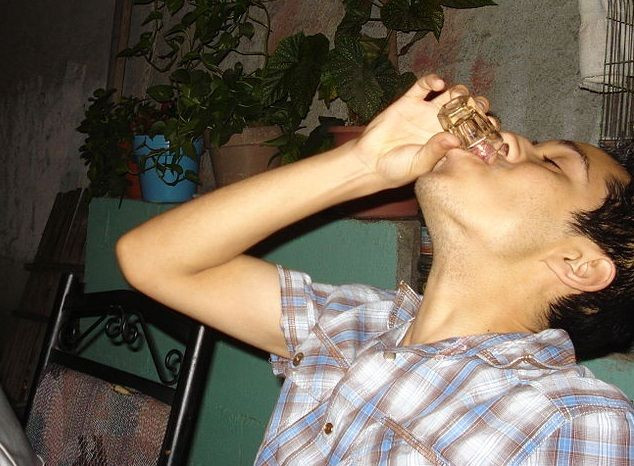Young Binge Drinkers At Risk For Heart Disease

It takes more than a cup of strong coffee and a shower to recover from a night of binge drinking. Young binge drinkers were found to have poor cardiovascular health similar to older adults with a lifetime history of drinking, according to a new study published in the Journal of the American College of Cardiology.
Although a lot of evidence shows the heart-healthy effects of a glass of red wine with dinner, binge drinking has immediate negative consequences.
Binge drinking is defined as having 5 or more drinks in a 2 hour period for men, 4 or more drinks in 2 hours for women. Practiced by nearly half of students on college campuses, the dangerous behavior poses the obvious risks from drunk driving, impulsive behavior, and even death from poisoning. The new research a few heavy nights of drinking could have long-term effects as well.
Researchers at the University of Illinois, Chicago studied the cardiovascular health, arteries, and vessels of 38 healthy, non-smoking young men and women ages 18-25. Participants on average had six binge-drinking episodes over the past month and a 4 year history of the behavior. They were tested one to four days after their most recent episode.
The arteries and vessels in these young, otherwise healthy people resembled those of individuals who have a lifetime history of daily heavy alcohol consumption, equivalen to 6 or more drinks a day over more than 8 years. Negative changes were observed in smooth muscle and epithelial tissue, which are responsible for regulating blood flow in vessels.
This type of damage to the blood vessels is a precursor to atherosclerosis, a condition in which the arteries harden, which leads to a buildup of fatty deposits and cholesterol. Atherosclerosis, in turn, could lead to heart attacks, stroke, and other cardiovascular events.
Binge drinking among adults 40-60 is associated with an increased stroke, sudden cardiac death, and heart attack. This study is the first to show the negative health effects of binge drinking in young, healthy people. Although the study participants had no increases in blood pressure or cholesterol, the classic risk factors for cardiovascular disease, the changes observed in their bodies were similar to older people with these risk factors.
"Regular binge drinking is one of the most serious public health problems confronting our college campuses, and drinking on college campuses has become more pervasive and destructive," said lead author Shane A. Phillips, PT, PhD, associate professor and associate head of physical therapy at the University of Illinois at Chicago. "Binge drinking is neurotoxic and our data support that there may be serious cardiovascular consequences in young adults."
Published by Medicaldaily.com



























